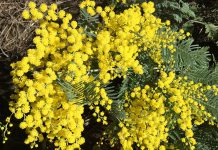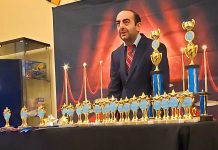I have sat quietly on the sidelines for most of my life.
Quiet on the playground when kids would utter the words “beaner” or “spic” when talking about kids who looked like me.
Quiet in the boardroom when executives would roll their eyes about having to make another “diversity hire” knowing that I was the only woman or person of color in the room and needed to hustle a little bit harder to prove I belonged there.
Quiet on the soccer field when parents would complain about how their kid won’t get into the college of their choice because “all the Black or brown kids are taking the spots.” Silently grieving for the future student of color who has to walk on campus questioning whether she’s rightfully earned her spot.
I sat there quietly because I knew that if I said something, folks would get uncomfortable, tell me that I was taking things too seriously, or, worse yet, I would lose my social status. Nobody likes the person who rocks the boat.
I had too much to lose, so I sat there quietly even though every derogatory statement I heard about Latinos from childhood to adulthood crushed my sense of self-worth.
But, I can no longer sit quietly on the sidelines.
We recently lost a beautiful, sweet soul in our community who we know was mercilessly bullied at school, by the kids in this town, because of his race. He was Latino. I am not here to lay blame on anyone for his death. It is a tragic loss and we cannot get him back. But, if we want to honor him, then we need more than a few social media posts grieving his loss. If you really want to make a difference for kids like him, then we need to start taking real action. We need to start examining our own lives and behaviors and ask ourselves: What was our role (explicit or implicit) in creating an environment where this could happen?
‘It is human nature to have an unconscious bias based on our unique lived experiences. We need to recognize that some of those biases are hurtful.’
—Tricia Montalvo Timm
Since 2020, I have heard from several members from traditionally underrepresented families in Scotts Valley about the environment their children face in our schools and our community. This is what I’ve learned:
Our kids with foreign-born ancestors have been told to go back to their country. Kids with dark skin have been taunted with the N-word. Latino kids have been called beaners and dirty immigrants. Kids have mocked our Asian students by pulling at their eyes to make slanted eyes. Classmates have bragged that their white ancestors used to own slaves. Other students have been called terrorists because they are of Middle Eastern descent. All of these things have happened right here in our community. Right here in our backyard.
The kids telling the stories did so in anonymity for fear of retribution. For minority kids, there is simply too much to lose for them. In fact, some of the kids who were brave enough to bring their situation to the school’s attention faced the realization that nothing meaningful happened to their perpetrators and they were now just left at school alone taunted even more for being “snitches.”
Some of our underrepresented kids and families stay quiet. They take it. They suffer in silence. Those who do speak up feel they are not heard and have been further isolated.
Am I saying that members of our community are bad people? No. But, certainly, bad choices have been made.
Am I saying that there is an intent to hurt others? I sure hope not.
We are all human. We have biases. It is human nature to have an unconscious bias based on our unique lived experiences. We need to recognize that some of those biases are hurtful. We can’t continue to pretend we are all perfect and that we treat everyone equally and fairly. We don’t. If we want to see this sort of tragedy avoided in the future, our collective job is to (1) start recognizing what bias we may have, (2) be courageous enough to acknowledge it, and (3) then try to do better.
So, my ask to all members of the Scotts Valley community, including students, parents, teachers, school administrators, and public officials, is this: “What are each of you doing to foster inclusivity in your home, your classroom and in your community?”
- Do you brush off ethnic slurs, sexist overtures, or gay jokes or do you challenge them?
- Do you hold kids accountable when you hear they participated in inappropriate behavior or do you simply think “kids will be kids”?
- Have you ever uttered the words, “I am not racist/sexist/homophobic, but…” in the home.
- Do you celebrate others’ differences, or do you call them “weird” or “not normal”?
- Do you do nothing knowing that these sorts of things are happening around you but instead blame others? It’s the [parents/schools/coaches] responsibility. Not mine.
I want to believe that none of us do or say things with an intent to be malicious. At our core, we all strive to do the right thing. However, the reality is that we all have deeply rooted unconscious beliefs that unintentionally hurt members of our community, especially those from underrepresented identities. It is not their job to bring it up or challenge us when we get it wrong. It is our job to realize how we are hurting them, what biases we hold and admit when we’ve messed up. It is our job to do the hard work.
So, can you do it? Can you start examining at your belief systems? Can you start having these uncomfortable conversations with your friends, colleagues and neighbors? Can you start interrupting bias when you see it in yourself, your child, your student, or your friend? Can we be better role models?












